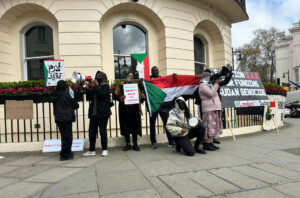Sudan’s Supreme Court has rejected an appeal submitted by the Steering Committee of the Sudanese Bar Association (SBA) concerning a reversal of the decision of the Labour Organisations Registrar in Khartoum in June to reinstate the trade unions affiliated with the former regime of Omar Al Bashir.
The decision was issued on Thursday and is “a blatant waste of justice,” according to lawyer and member of the SBA Steering Committee Rehab El Mubarak. She told Radio Dabanga that the committee will challenge the decision with all means they have available to them legally. The SBA will also hold a press conference to clarify the circumstances surrounding the decision.
The Supreme Court circuit presided by Judge Mohamed Babiker aka Abu Sabiha made the decision based on Decree No. 3/2019. El Mubarak explained that “this is a law for federations and unions affiliated to the General Registrar of Labour Organisations, while the SBA is an independent union. Its committees have absolutely nothing to do with the General Registrar of Labour Organisations.”
On November 7, El Mubarak told Sudan Tribune that the committee “submitted a memorandum to the head of the judiciary, Abdelaziz Abdelrahman, demanding that Abu Sabiha be removed from adjudicating the dispute over the SBA” due to the defence’s doubts about the integrity and impartiality of the judge.
Judge Mohamed Abu Sabiha is an affiliate of the Al Bashir regime. He was reappointed to his position after the coup d’état in October last year. Recently, he has been widely criticised for the cancellation of most of the decisions of the Empowerment Removal Committee, especially those related to the reinstatement of companies of supporters of the former regime.
Late November, Ashraf Abdelaziz, Editor-in-Chief of El Jareeda newspaper, told Radio Dabanga that El Burhan’s decision to freeze trade unions comes in conjunction with preparing the climate for signing the agreement between the FFC-CC and the military. He explained that the return of the former SBA would have led to the loss of legitimacy in the organisation’s draft constitution, which would affect the negotiations.
Members of the former regime’s Lawyers Syndicate violently confronted members of the SBA steering committee on November 1. Following the event, Lawyer Sati El Haj, a member of the SBA defence team, said that they “are targeting progressive unions, especially the Sudanese Journalists Syndicate, the SBA, and the Sudanese Engineers Union”.
The attack came after the SBA announced its rejection of the decision by the Supreme Court’s Appeals Committee to reject their appeal and thus reinstate Bashir-allied trade unions.
Trade unions in Sudan, officially established in 1947, have always been well-organised. They were instrumental in the October 1964 Revolution, which overthrew Ibrahim Abboud’s dictatorship, and the popular uprising against President Jaafar El Nimeiri in March 1985 when the people chose their leadership represented by the Union Association. For this reason, the regime of Al Bashir dissolved the trade unions and other professional associations a year after it took power in a military coup in June 1989 and established new unions with members affiliated with the new regime.
 A group of lawyers in front of the Ministry of Justice (File photo: Sudan Tribune)
A group of lawyers in front of the Ministry of Justice (File photo: Sudan Tribune)











 and then
and then